Desmond Tutu: A Journey of Courage, Faith and Legacy
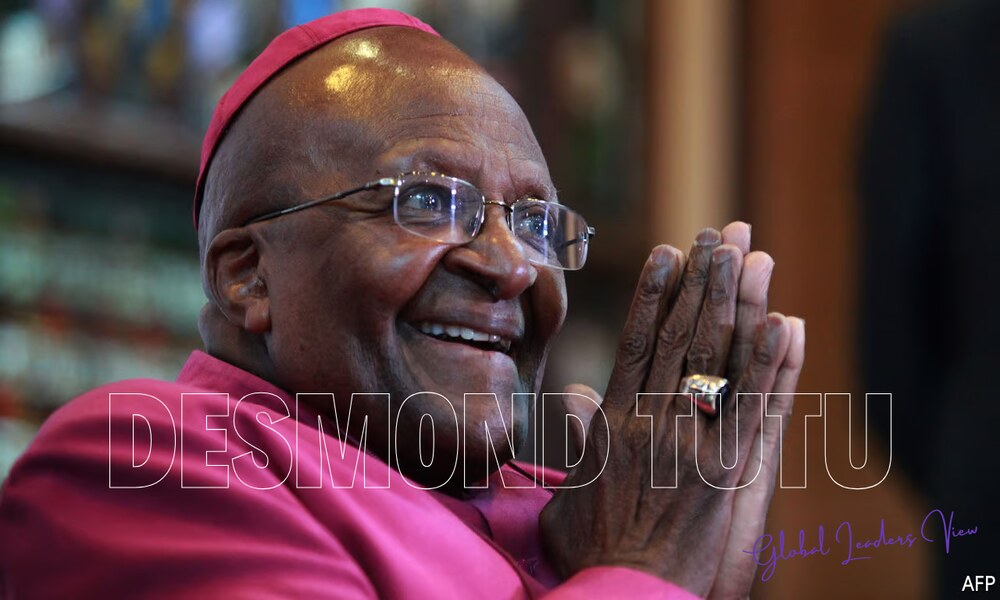
Desmond Tutu, a towering figure in both South African history and global advocacy for human rights, was a man whose life’s work reshaped nations and influenced the hearts of millions. His remarkable journey stands as a testament to resilience, compassion, and the transformative power of faith. Known for his unwavering commitment to justice and equality, Tutu’s story is one of immense sacrifice, triumph, and the unyielding belief that love could conquer even the deepest of hatred.
Early Life and Formative Years
Desmond Mpilo Tutu was born on October 7, 1931, in Klerksdorp, South Africa. Raised in a society entrenched in the brutal systems of apartheid, his early life was marked by racial injustice and inequality. As a young boy, Tutu experienced the harsh realities of segregation firsthand. His father, a teacher, instilled in him the importance of education, which would later become a cornerstone of his advocacy. Despite the oppressive atmosphere, Tutu’s sharp intellect and devotion to faith marked him as a future leader, destined to challenge the status quo.
Tutu’s academic journey took him through the University of Fort Hare, an institution known for producing prominent anti-apartheid leaders. It was here that he first encountered the deeply entrenched racial divisions within his country, yet it was also during these years that Tutu’s understanding of the power of education, compassion, and spirituality deepened.
Theological Foundations and Calling to the Priesthood
After completing his studies, Tutu was ordained as an Anglican priest in 1960. His calling to the priesthood was not just a religious decision but also a deeply political one. As an Anglican cleric, Tutu found his moral compass rooted in the teachings of Jesus Christ, but he was also acutely aware of the profound inequalities surrounding him. His theological training shaped his belief that the church should be a voice for the voiceless and a platform for justice in an unjust world.
In the early 1970s, Tutu’s commitment to fighting apartheid intensified. While serving as a priest, he also held academic positions, which further solidified his stature as an influential figure within both the church and society. His sermons, speeches, and public appearances resonated with millions, particularly because they drew on his deep moral convictions and commitment to non-violence.
Desmond Tutu and the Fight Against Apartheid
As apartheid grew more entrenched, Desmond Tutu became an outspoken critic of the system. His deep conviction that apartheid was not only a political and social injustice but a moral one, inspired him to take an active stand. Tutu’s calls for peaceful resistance and non-violent protest resonated globally. He used his platform to speak out against racial segregation, inequality, and discrimination.
In 1976, Tutu’s rise as a vocal critic of apartheid reached a new height when he was appointed as the first black Anglican Dean of Johannesburg. In this influential position, he used his voice to challenge the policies of the South African government, all the while calling for peaceful and non-violent resistance. Tutu’s influence grew significantly in the 1980s when he was appointed as the Archbishop of Cape Town, the highest position in the Anglican Church in Southern Africa.
Throughout his career, Desmond Tutu employed the philosophy of Ubuntu—a Southern African worldview that emphasizes the interconnectedness of all people. His belief in Ubuntu fueled his stance against apartheid, urging all South Africans to embrace one another, regardless of race or background, and work together toward a better future.
The Nobel Peace Prize and Global Recognition
In 1984, Desmond Tutu’s tireless efforts to combat apartheid were globally acknowledged when he was awarded the Nobel Peace Prize. The Nobel Committee recognized Tutu’s role as an advocate for nonviolent resistance and his “role as a unifying leader figure in the campaign to resolve the problem of apartheid in South Africa.” The Nobel Prize did not just elevate his profile within South Africa but also cemented his status as a global leader for human rights and equality.
Tutu’s recognition on the world stage was not just a personal achievement; it was a beacon for oppressed people worldwide. His moral leadership galvanized the global anti-apartheid movement, and he used his newfound platform to call for continued international pressure on the South African regime.
Post-Apartheid Efforts: Healing and Reconciliation
With the advent of democracy in South Africa in 1994, Desmond Tutu’s role evolved. No longer just an opponent of apartheid, he became a key player in the new South Africa’s healing process. Tutu was appointed as the chairman of the Truth and Reconciliation Commission (TRC), a body that sought to uncover the full extent of the atrocities committed during apartheid and to promote national reconciliation.
The TRC was a groundbreaking initiative, founded on the belief that for South Africa to move forward, it needed to confront its painful past. Tutu’s leadership in this process was instrumental. He helped facilitate dialogues between the victims and perpetrators of apartheid-era violence, encouraging both parties to engage in truth-telling and forgiveness.
Tutu’s role in the TRC cemented his legacy as not just a political leader but a moral and spiritual guide for his nation. Through his compassion and wisdom, he emphasized that reconciliation was not about forgetting the past but acknowledging it in order to build a better future.
Global Advocacy Beyond South Africa
Tutu’s efforts were not confined to South Africa. His work in human rights extended globally, advocating for peace, equality, and the protection of marginalized communities. From the United States to the United Kingdom, Desmond Tutu consistently spoke out on issues of social justice. His opposition to the Iraq War, calls for the divestment from corporations linked to human rights abuses, and vocal support for Palestinian rights were just a few of the global causes that Tutu championed.
As an elder statesman, Tutu continued to push for justice and fairness in global governance, always reminding leaders of their moral responsibility to humanity. His unwavering stance on issues of equity, his refusal to be silenced, and his consistent calls for justice for all people left an indelible mark on global human rights discourse.
Legacy: Desmond Tutu’s Enduring Impact
Desmond Tutu’s legacy is immeasurable. He died on December 26, 2021, but his influence endures in the values he espoused and the lives he touched. Through his role in the anti-apartheid movement, his leadership in reconciliation efforts, and his global advocacy for justice, Tutu changed the course of history.
His moral integrity, unshakable faith, and commitment to non-violent resistance continue to inspire leaders around the world. His calls for compassion, justice, and reconciliation remain timeless principles for anyone seeking to make a positive impact in their community or nation.
Even in death, Desmond Tutu’s work continues to inspire future generations to live with purpose and to challenge systems of oppression. His life reminds us that, no matter the challenges, the power of love, courage, and justice will always have the ability to change the world.
Recent Posts
Related Articles
Milan Dordevic: Navigating Two Decades of Innovation and Leadership Internationally Across Industries
You’ve got to be serious at some things, at a particular age,...
ByGlobal Leaders ViewFebruary 5, 2025Yossi J Amuial: Steering the Course of Innovation and Excellence at Executive Tag & Title Svcs, Inc.
In the vast sea of leadership, true leaders emerge not by just...
ByGlobal Leaders ViewFebruary 5, 2025Lisa Anna Palmer: A Journey of Empowerment, Vision, and Impact
You can hate more but you can never love less. The hope...
ByGlobal Leaders ViewFebruary 5, 2025Krystn Macomber: From Athlete to Entrepreneur: The Journey of a Visionary CEO
Krystn Macomber knows winning. Going back to her days as a D1...
ByGlobal Leaders ViewFebruary 5, 2025



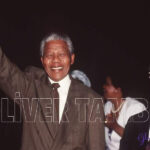
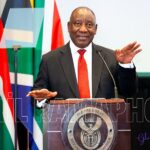

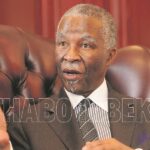





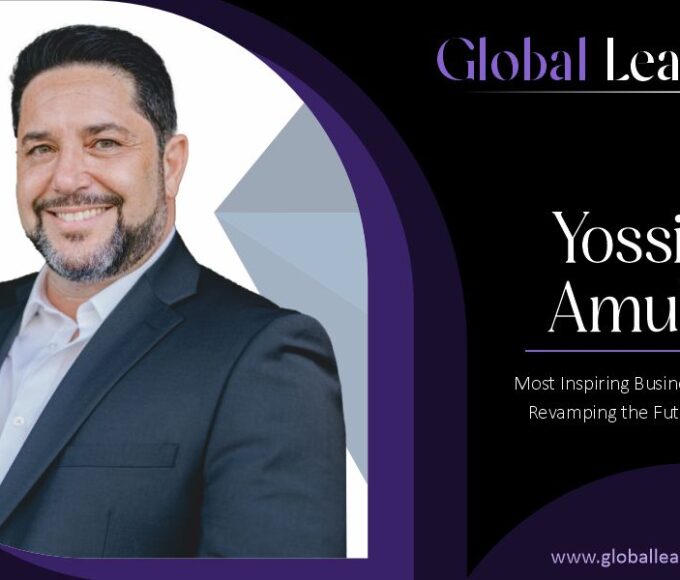


Leave a comment